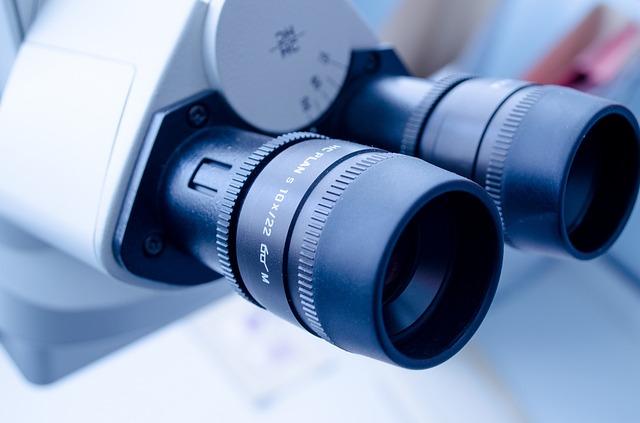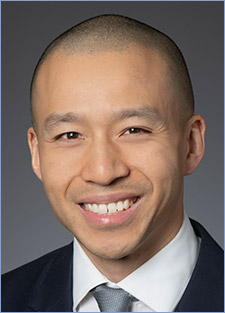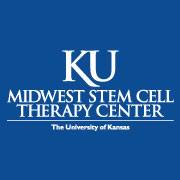Kansas Stem Cell Therapy Providers
Here you can find the best stem cell therapy providers in the state of Kansas. Fill out the form and a provider will contact you as soon as possible.

Stem Cell Therapy in Kansas: A Comprehensive Guide For KS Residents
Stem cells have become a major focus in the field of regenerative medicine over the past few decades. These incredible cells have the potential to treat a variety of degenerative conditions by essentially regenerating damaged tissue in the body. As a result, researchers around the world are investigating how stem cells could be used to develop new therapies for conditions that currently have no cure.
In Kansas, exciting advancements are being made in stem cell research and treatment. The state is home to top research institutions like the University of Kansas Medical Center, which is exploring innovative ways to utilize stem cells. There are also specialty clinics in cities like Kansas City that provide patients access to stem cell therapies and clinical trials.
For residents of Kansas interested in stem cell treatments, this can understandably also be a confusing field to navigate. Our goal with this guide is to provide an overview of the stem cell landscape in Kansas, looking at what types of therapies are currently available, where they can be accessed, costs and considerations, and what the future may hold. We want to empower Kansas residents with the knowledge to make informed decisions about whether stem cell treatment is right for their specific condition.
Stem Cell Basics
Stem cells are essentially the body’s raw materials and “master cells”. They are cells that have the potential to develop into many different types of cells in the body. There are a few main categories of stem cells:
- Embryonic stem cells – these stem cells come from human embryos, usually 4-5 days old. They are able to develop into any cell type in the body. However, embryonic stem cell research has faced ethical concerns.
- Adult stem cells – these stem cells are found in tissues throughout the fully developed human body, such as the bone marrow, fat, and blood. They have more limitations than embryonic stem cells, but can still develop into multiple cell types.
- Induced pluripotent stem cells – these are adult cells that have been genetically reprogrammed back into a stem cell-like state. This allows them to differentiate into any cell type.
The unique potential of stem cells makes them useful for regenerative medicine. When injected into damaged tissue in the body, they can help repair and regenerate cells. For example, stem cells from bone marrow could help regenerate damaged cartilage tissue in an arthritic knee.
Researchers are investigating how to use stem cells to treat conditions like spinal cord injuries, heart disease, neurological conditions, and more. The versatility of stem cells to morph into different cell types gives them therapeutic potential across many parts of the body.
Finding a Provider
Do your research to find a qualified stem cell clinic and provider in Kansas. Look for board-certified physicians with experience using stem cells to treat your specific condition. Beware of any clinics making unrealistic claims.
Understanding the Options
Meet with the provider to discuss your treatment options. Key questions to ask:
- What types of stem cells will be used and why are they recommended for my condition?
- Will stem cells be my own (autologous) or donated?
- Is this an established treatment or experimental therapy as part of a clinical trial?
Evaluating the Costs
Stem cell therapies are often not covered by insurance and can range from $5,000 to $25,000. Confirm costs upfront and payment plan options. Clinical trials may provide treatment at reduced cost.
Considering the Risks
While serious risks are rare, discuss any side effects like infection or allergic reaction. Ensure the provider follows safety protocols.
By selecting an experienced provider and understanding your options, risks, and costs, you can make an informed decision about pursuing stem cell therapy in Kansas.
The Future of Stem Cells in Kansas
While stem cell therapies in Kansas are still in their early stages, there is tremendous promise for continued expansion and new treatment options in the future.
Ongoing Research
Researchers across the state will likely make exciting discoveries into using stem cells to treat a wider range of conditions. Areas poised for growth include neurological disorders, autoimmune diseases, and orthopedic injuries.
New Clinical Trials
As research progresses, more clinical trials are expected to launch evaluating innovative stem cell therapies. Kansas residents will have increasing opportunities to potentially access cutting-edge treatments through trials.
Regulatory Changes
How state government and the FDA regulate stem cell treatments will impact accessibility for patients in Kansas. Pressure to ease access while ensuring safety will shape policies.
Ethical Considerations
Debates around the ethics of embryonic stem cell use and gene editing techniques like CRISPR will likely continue in Kansas. However, alternative sources like induced pluripotent stem cells may enable ethical progress.
In the coming years, we can expect stem cell science to rapidly change. Kansas is well positioned through its premier research institutions and clinics to be a leader. Patients will benefit from the state’s drive to translate stem cell research into safe, effective, and accessible treatments.
FAQ
Q: What is stem cell therapy?
A: Stem cell therapy is a form of regenerative medicine that uses stem cells to promote the repair, regeneration, and healing of damaged or diseased tissues in the body.
Q: What are the different types of stem cells used in therapy?
A: There are several types of stem cells used in therapy, including embryonic stem cells, adult stem cells, and induced pluripotent stem cells. The type of stem cells used depends on the specific condition being treated.
Q: Is stem cell therapy available in Kansas?
A: Yes, stem cell therapy is available in Kansas. There are several regenerative therapy centers in Kansas that offer stem cell treatments for various conditions.
Q: Can you recommend a regenerative therapy center in Kansas City?
A: Kansas Regenerative Medicine Center is a well-known regenerative therapy center in Kansas City that provides stem cell treatments for a range of conditions. They have a team of experienced doctors and use state-of-the-art technologies.
Q: What is the use of stem cells in regenerative medicine?
A: Stem cells are used in regenerative medicine to stimulate the body’s natural healing processes and promote tissue repair. They can differentiate into various cell types and release growth factors that aid in the regeneration of damaged tissues.
Q: Are there any clinical trials for stem cell therapy in Kansas?
A: Yes, there are ongoing clinical trials for stem cell therapy in Kansas. These trials aim to evaluate the safety and efficacy of stem cell treatments for specific conditions.
Q: What are the benefits of using stem cells in regenerative medicine?
A: The use of stem cells in regenerative medicine offers several benefits, including reduced pain, improved functionality, faster healing, and the potential to avoid invasive surgeries.
Q: How are stem cell treatments administered?
A: Stem cell treatments can be administered through injections directly into the affected area. In some cases, stem cells may also be delivered through intravenous infusion or surgical implantation.
Q: Do stem cell treatments use autologous stem cells?
A: Yes, many stem cell treatments utilize autologous stem cells, which are derived from the patient’s own body. This minimizes the risk of rejection or adverse reactions.
Q: What other regenerative therapies are commonly used in conjunction with stem cell therapy?
A: Platelet-rich plasma (PRP) therapy, which involves injecting concentrated platelets and growth factors derived from the patient’s blood, is commonly used in conjunction with stem cell therapy to enhance the regenerative effect.
Conclusion
Stem cell therapy is an exciting and rapidly evolving field in Kansas. Key research institutions in the state are making critical breakthroughs in understanding how to utilize the regenerative power of stem cells for a variety of conditions. Patients today have increasing opportunities to potentially access stem cell treatments at specialty clinics across Kansas.
While stem cell therapies are still considered experimental and costly, we are moving towards a future where regenerative medicine may become a viable first-line treatment for currently incurable diseases. Kansas is helping lead the way in responsibly advancing and regulating this medical frontier.
For residents suffering from degenerative conditions, it is worthwhile having discussions with trusted healthcare providers about whether stem cell therapy is appropriate. Seek qualified specialists like those practicing in Kansas who can provide frank assessments of the current benefits and risks.
The landscapes for stem cell research and treatment hold much promise in Kansas. Though some uncertainty still exists around this emerging field, the state’s academic and clinical excellence puts it in an ideal position to transform how we approach chronic and terminal illness. Stem cells represent new hope that healing and restoration may be possible where previously there was none.





